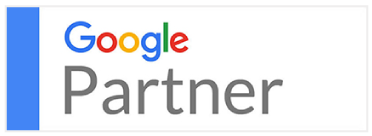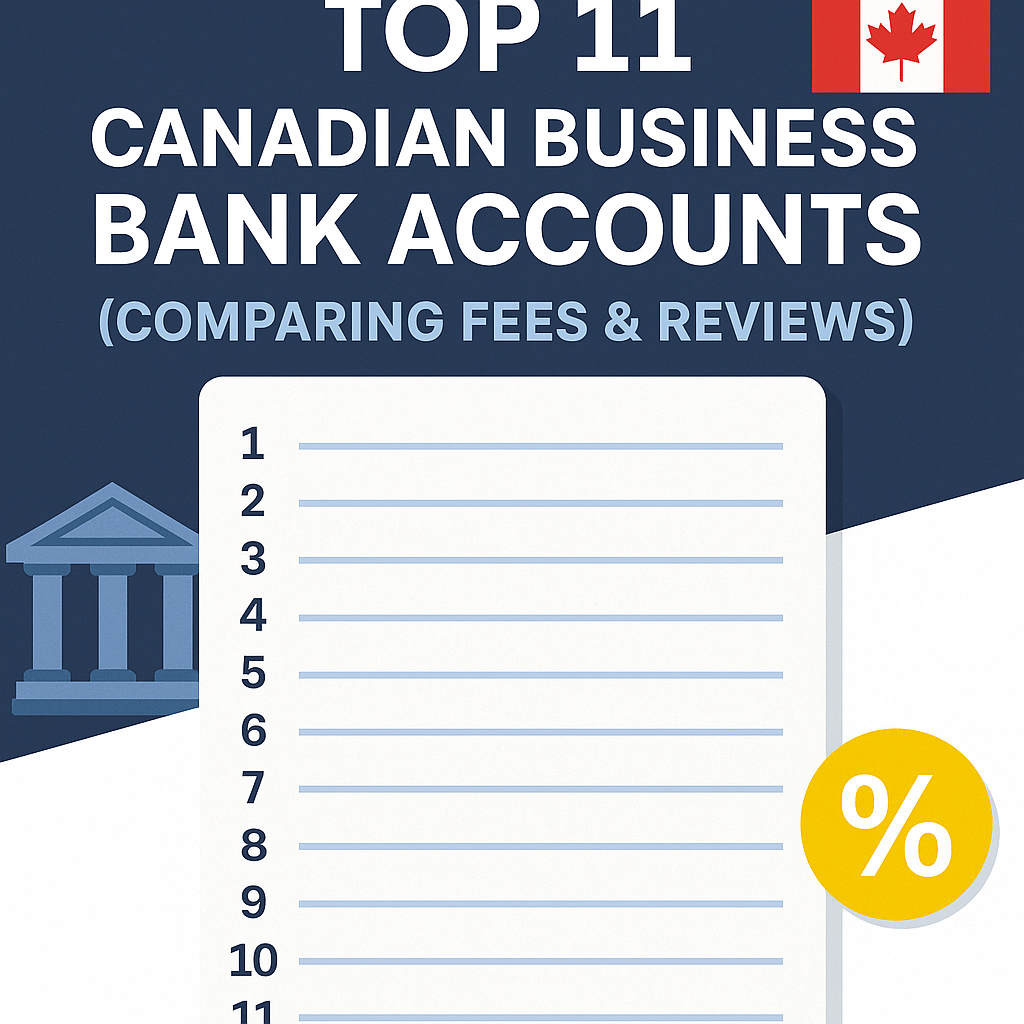GOOGLE ADS MANAGEMENT
ALL SERVICES- GRAPHIC DESIGN & BRANDING
➥ WEBSITE DESIGN TORONTO
➥ TORONTO LOGO DESIGN
➥ BROCHURE GRAPHIC DESIGN
➥ INFOGRAPHIC DESIGN
➥ BUSINESS CARD DESIGN
➥ PACKAGE DESIGN TORONTO
➥ ILLUSTRATION DESIGN
➥ ADVERTISING POSTER DESIGN
➥ BRANDING STRATEGY & SERVICES- ➤ VIEW ALL SERVICES
WEB DEVELOPMENT & SUPPORT
➥ CUSTOM WEB DESIGN TORONTO
➥ ECOMMERCE WEBSITE DESIGN TORONTO
➥ WEBSITE MAINTENANCE SERVICES
➥ SHOPIFY WEBSITE DESIGN
➥ SHOPIFY EXPERTS TORONTO
➥ WORDPRESS DEVELOPMENT
➥ WORDPRESS MAINTENANCE- ➤ VIEW ALL SERVICES
WEBSITE MARKETING & CONTENT
➥ SEO PACKAGES TORONTO
➥ TORONTO SOCIAL MEDIA AGENCY
➥ CONTENT MARKETING TORONTO
➥ PPC MANAGEMENT TORONTO
➥ AFFILIATE MARKETING CANADA
➥ STRATEGIC CONSULTATION- ➤ VIEW ALL SERVICES
ABOUT
RESOURCES- LET’S CHAT
Questions? Call us at
647-348-4995

GOOGLE ADS MANAGEMENT
ALL SERVICES- GRAPHIC DESIGN & BRANDING
➥ WEBSITE DESIGN TORONTO
➥ TORONTO LOGO DESIGN
➥ BROCHURE GRAPHIC DESIGN
➥ INFOGRAPHIC DESIGN
➥ BUSINESS CARD DESIGN
➥ PACKAGE DESIGN TORONTO
➥ ILLUSTRATION DESIGN
➥ ADVERTISING POSTER DESIGN
➥ BRANDING STRATEGY & SERVICES- ➤ VIEW ALL SERVICES
WEB DEVELOPMENT & SUPPORT
➥ CUSTOM WEB DESIGN TORONTO
➥ ECOMMERCE WEBSITE DESIGN TORONTO
➥ WEBSITE MAINTENANCE SERVICES
➥ SHOPIFY WEBSITE DESIGN
➥ SHOPIFY EXPERTS TORONTO
➥ WORDPRESS DEVELOPMENT
➥ WORDPRESS MAINTENANCE- ➤ VIEW ALL SERVICES
WEBSITE MARKETING & CONTENT
➥ SEO PACKAGES TORONTO
➥ TORONTO SOCIAL MEDIA AGENCY
➥ CONTENT MARKETING TORONTO
➥ PPC MANAGEMENT TORONTO
➥ AFFILIATE MARKETING CANADA
➥ STRATEGIC CONSULTATION- ➤ VIEW ALL SERVICES
ABOUT
RESOURCES- LET’S CHAT
Questions? Call us at
647-348-4995

GOOGLE ADS MANAGEMENT
ALL SERVICES- GRAPHIC DESIGN & BRANDING
➥ WEBSITE DESIGN TORONTO
➥ TORONTO LOGO DESIGN
➥ BROCHURE GRAPHIC DESIGN
➥ INFOGRAPHIC DESIGN
➥ BUSINESS CARD DESIGN
➥ PACKAGE DESIGN TORONTO
➥ ILLUSTRATION DESIGN
➥ ADVERTISING POSTER DESIGN
➥ BRANDING STRATEGY & SERVICES- ➤ VIEW ALL SERVICES
WEB DEVELOPMENT & SUPPORT
➥ CUSTOM WEB DESIGN TORONTO
➥ ECOMMERCE WEBSITE DESIGN TORONTO
➥ WEBSITE MAINTENANCE SERVICES
➥ SHOPIFY WEBSITE DESIGN
➥ SHOPIFY EXPERTS TORONTO
➥ WORDPRESS DEVELOPMENT
➥ WORDPRESS MAINTENANCE- ➤ VIEW ALL SERVICES
WEBSITE MARKETING & CONTENT
➥ SEO PACKAGES TORONTO
➥ TORONTO SOCIAL MEDIA AGENCY
➥ CONTENT MARKETING TORONTO
➥ PPC MANAGEMENT TORONTO
➥ AFFILIATE MARKETING CANADA
➥ STRATEGIC CONSULTATION- ➤ VIEW ALL SERVICES
ABOUT
RESOURCES- LET’S CHAT
Questions? Call us at
647-348-4995

GOOGLE ADS MANAGEMENT
ALL SERVICES- GRAPHIC DESIGN & BRANDING
➥ WEBSITE DESIGN TORONTO
➥ TORONTO LOGO DESIGN
➥ BROCHURE GRAPHIC DESIGN
➥ INFOGRAPHIC DESIGN
➥ BUSINESS CARD DESIGN
➥ PACKAGE DESIGN TORONTO
➥ ILLUSTRATION DESIGN
➥ ADVERTISING POSTER DESIGN
➥ BRANDING STRATEGY & SERVICES- ➤ VIEW ALL SERVICES
WEB DEVELOPMENT & SUPPORT
➥ CUSTOM WEB DESIGN TORONTO
➥ ECOMMERCE WEBSITE DESIGN TORONTO
➥ WEBSITE MAINTENANCE SERVICES
➥ SHOPIFY WEBSITE DESIGN
➥ SHOPIFY EXPERTS TORONTO
➥ WORDPRESS DEVELOPMENT
➥ WORDPRESS MAINTENANCE- ➤ VIEW ALL SERVICES
WEBSITE MARKETING & CONTENT
➥ SEO PACKAGES TORONTO
➥ TORONTO SOCIAL MEDIA AGENCY
➥ CONTENT MARKETING TORONTO
➥ PPC MANAGEMENT TORONTO
➥ AFFILIATE MARKETING CANADA
➥ STRATEGIC CONSULTATION- ➤ VIEW ALL SERVICES
ABOUT
RESOURCES- LET’S CHAT
Questions? Call us at
647-348-4995
![]()
![]()
![]()

- December 29, 2023
-
 Amine Rahal
Amine Rahal
Ad Rank is a mysterious yet fundamental concept in Google Ads, the advertising platform provided by Google. It’s a value that determines the position of your ad on the search engine results page (SERP) when someone performs a search. Ad Rank is crucial because it affects not only where your ad appears but also whether it appears at all, so it’s extremely important for you to understand it, monitor it and improve it.
What is it Ad Rank?
At its core, Ad Rank is a calculation that Google uses to decide the order in which competing ads should be displayed. When someone conducts a search that triggers ads, Google Ads performs a lightning-fast auction to determine which ads will show up and in what order. There are only 3 spots available at the top of the first page, so only the ads with the best ad rank will qualify to appear in those spots.
This means that even if you have a large budget to advertise on Google, you still need to prove to Google that your ads, keywords and landing pages are worth showing to the user. Having the money is only part of the equation. Google cares a lot about the searcher’s satisfaction with the results, which is why they implemented the ad rank mechanism to ensure only the most relevant ads are shown to the searcher.
Components of Ad Rank
Ad Rank is primarily determined by several key factors:
- Bid Amount: This is how much you are willing to pay per click on your ad. Higher bids can lead to a higher Ad Rank, but it’s not the only factor.
- Quality Score: Quality Score is a metric that reflects the quality of your ads, keywords, and landing pages. It is a score between 1 and 10 and is determined based on factors like click-through rate (CTR), relevance of each keyword to its ad group, landing page quality and relevance, and the historical performance of your Google Ads account.
- Ad and Landing Page Relevance: How closely your ad and landing page content match the intent behind a user’s search query. Relevant ads are more likely to receive higher Quality Scores.
- Ad Format and Extensions: The use of ad extensions can significantly impact your Ad Rank. Extensions provide additional information and more ways for users to interact with your ad, such as site links, call buttons, location information, etc.
- Context of the Search: The context includes factors such as the searcher’s location, device type, time of the search, nature of the search query, and other ads competing for the same space.
- Ad Auction Thresholds: Google sets certain thresholds based on factors like ad quality and topic, which must be met for an ad to appear.
Importance of Monitoring Your Ad Rank
While Ad Rank isn’t a metric you can monitor per se, you should keep an eye on all the metrics covered in the previous section that influence your ad rank. Monitoring your ad rank will help you in several ways:
- Visibility: A higher Ad Rank means your ad is more likely to be seen by users. It determines if your ad will appear on the first page of search results, which is crucial for visibility.
- Cost-Effectiveness: Ad Rank also influences the cost per click (CPC). A better Quality Score can lead to a higher Ad Rank even with a lower bid, making your campaign more cost-effective.
- Competitive Edge: In highly competitive markets, having a higher Ad Rank can be the key to standing out against competitors.
Improving Ad Rank
Improving your Ad Rank involves several strategies:
- Optimizing Quality Score: This includes improving the CTR of your ads, ensuring the relevance of your ads and keywords, and creating effective and relevant landing pages.
- Smart Bidding: Adjust your bids based on how valuable certain clicks are to your business. This includes considering the searcher’s location, device, and the time of day.
- Utilizing Ad Extensions: By adding more relevant ad extensions, you can make your ads more appealing and informative.
- Targeting and Segmentation: Tailoring your ads to specific audiences can improve their relevance and effectiveness.
Ad Rank Scenarios
Here are some examples to illustrate the impact of Ad Rank:
Example 1: Quality Score Impact on Visibility and Cost
- Scenario: An advertiser bids $2 per click for the keyword “best running shoes.” Their ad has a Quality Score of 7.
- Result: Their Ad Rank is high enough to secure the top ad position on the SERP, leading to significant visibility.
- Benefit: They pay a lower CPC of $1.50 due to the high Quality Score, even though their bid wasn’t the highest.
Example 2: Ad Extensions Impact on Click-Through Rate
- Scenario: An advertiser adds sitelink extensions to their ad, providing links to different product categories within their online shoe store.
- Result: The extensions make the ad more informative and engaging, leading to a 20% increase in CTR.
- Benefit: The higher CTR contributes to a better Quality Score and potentially lower CPCs, while also driving more traffic to relevant pages within the website.
Example 3: Relevance Impact on Auction Outcomes
- Scenario: Two advertisers who own dental clinics bid the same amount for the keyword “dentist near me.” Advertiser A’s ad is highly relevant to the search query and has a laser-targeted landing page presenting the dental services, positive testimonials, promotions for new patients and a clear call-to-action. Advertiser B’s ad is less relevant, and they are linking to the main website instead of a well-optimized landing page. Advertiser B has a larger budget than Advertiser A.
- Result: Advertiser A wins the auction and their ad appears in the top position, even though their bid wasn’t higher than Advertiser B.
- Benefit: Advertiser A achieves better visibility, more conversions and acquires more patients for their central clinics through ads, due to the high relevance of their ad to the user’s search intent.
Example 4: Context Impact on Ad Rank
- Scenario: A user searches for “pizza delivery near me” on their mobile device at 7pm on a Friday.
- Result: Google prioritizes ads from local pizza restaurants that are open for delivery and have a strong mobile presence in the auction.
- Benefit: Users see ads that are highly relevant to their immediate needs and context, increasing the likelihood of engagement and conversions.
Conclusion
In summary, Ad Rank is a crucial metric in the Google Ads ecosystem that determines the placement of your ads on the SERP regardless of which industry you are involved in. It is influenced by several factors including bid amount, the quality and relevance of your ad, and the expected impact of ad extensions and formats. Understanding, monitoring and optimizing these factors can significantly increase the chances of your ad being seen and clicked, leading to better campaign performance. In the dynamic world of online advertising, maintaining and improving Ad Rank requires ongoing effort and adaptation to changing trends and algorithms.
Ad Rank FAQ
1. What is Ad Rank?
Ad Rank is a metric used by Google Ads to determine the position of your ad on the search engine results page (SERP). It’s calculated using your bid amount, the components of Quality Score (including ad relevance, click-through rate, and landing page quality), and the expected impact of extensions and other ad formats.
2. How is Ad Rank calculated?
Google calculates Ad Rank using several factors: your bid amount, Quality Score (a rating of your overall ad quality), the search context (like the user’s device and time of search), and the expected impact of ad extensions and formats.
3. What is Quality Score and how does it affect Ad Rank?
Quality Score is an estimate of the quality of your ads, keywords, and landing pages. Higher quality ads can lead to lower prices and better ad positions. The components of Quality Score (CTR, ad relevance, and landing page experience) significantly influence your Ad Rank.
4. Can I improve my Ad Rank by increasing my bid?
Yes, increasing your bid can improve your Ad Rank. However, it’s not the only factor. It’s equally important to improve the quality of your ads and landing pages.
5. How often is Ad Rank determined?
Ad Rank is recalculated each time your ad is eligible to appear and competes in an auction, which means it can fluctuate with each search.
6. Why is my Google ad not showing up, even with high bids?
If your ad isn’t showing up despite high bids, it could be due to low Quality Scores, poor ad relevance, or issues with your account or campaign settings.
7. What role do ad extensions play in Ad Rank?
Ad extensions can significantly impact Ad Rank by improving the visibility and relevance of your ads. They provide additional information and more ways for users to interact with your ad, which can increase CTR and overall ad effectiveness.
8. Is Ad Rank the same as search engine ranking?
No, Ad Rank is specific to Google Ads and determines the position of paid ads on the SERP, while search engine ranking generally refers to the position of organic search results.
9. How does Google determine the expected impact of ad extensions?
Google estimates the impact of extensions and formats based on factors such as their relevance, CTRs, and the prominence of the extensions on the search results page.
10. Can a lower bid win a higher position if the ad quality is better? – Yes, it’s possible for ads with lower bids to win higher positions if their ad quality and relevance are significantly better than those of competitors.
11. What is the best way to monitor and improve my Ad Rank without increasing my budget? – Focus on improving your Quality Score by optimizing ad relevance, enhancing the user experience of your landing pages, and using relevant ad extensions.
12. Does a higher Ad Rank always lead to more clicks and conversions? – While a higher Ad Rank improves visibility, it doesn’t guarantee more clicks or conversions. The effectiveness of your ad copy, the relevance of your offer, and the user experience on your landing page also play crucial roles.

Tech Entrepreneur, Author, and CEO of Little Dragon Media. Passionate about entrepreneurship, philanthropy, digital marketing, blockchain, finance, investing, health fitness & nonprofits.
RECENT POSTS
- PolicyMe – Legit Canadian Insurance Policy? Let’s Review…
- 10 Small Business Loans & Financing Options in Ontario
- Top 8 Small Business Insurance Providers in Canada (2025)
- Top 11 Canadian Business Bank Accounts (Comparing Fees & Reviews)
- SCAM ALERT: How a Fake Google Ads Inquiry Nearly Got Us (And How to Protect Yourself)

Ready to chat about how Little Dragon Media can enhance your business?
Call us now at 647-348-4995 or

OUR AWARDS & CERTIFICATIONS






WHAT OUR CLIENTS ARE SAYING



Little Dragon Media's professionalism and commitment to delivering excellence are truly commendable. I highly recommend their services... Thank you for your stellar work!
- Delna Bharucha

Little Dragon Media worked on developing our logo and website. They did an absolutely AMAZING job on both projects. These guys ROCK and you won't be disappointed.
- Sonia Nutt

My team had a great experience working with Little Dragon Media. We will certainly engage with Little Dragon Media for any additional projects in the future. Highly recommend!
- Carly Rooney



- 682A St-Clair West Toronto, ON M6C 1B1
- (647)-348-4995
- info@littledragon.ca
MOST POPULAR SERVICES
RECENT POSTS
GET MORE CLIENTS
Don't let your competitors take over. We'll help you climb to the top and get more clients.



- 682A St-Clair West Toronto, ON M6C1B1
- (647)-348-4995
- info@littledragon.ca
MOST POPULAR SERVICES
RECENT POSTS
GET MORE CLIENTS
Don't let your competitors take over. We'll help you climb to the top and get more clients.

Contact | Press Mentions | Privacy Policy | Terms of Service
© 2024 Little Dragon Media. All Rights Reserved.






